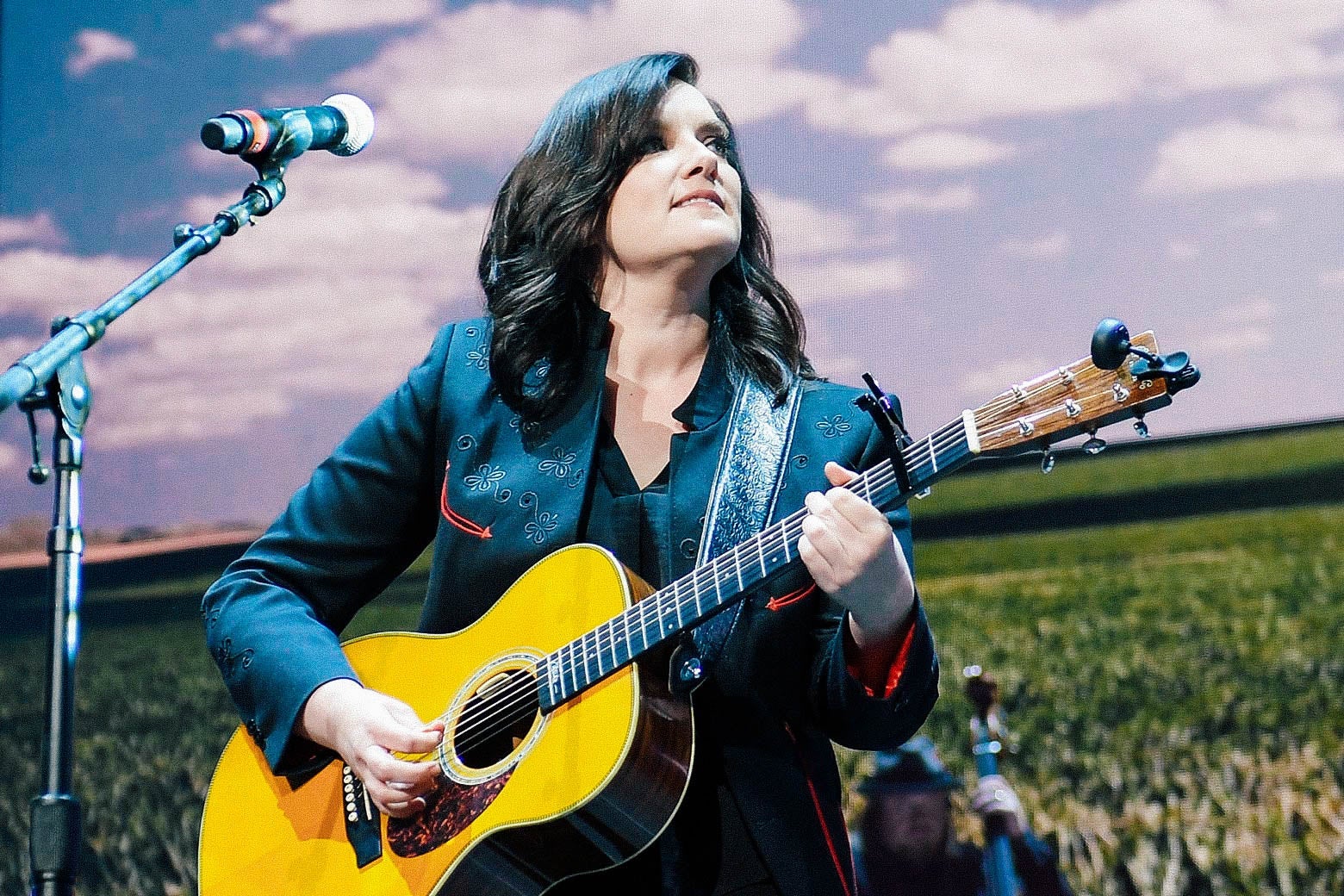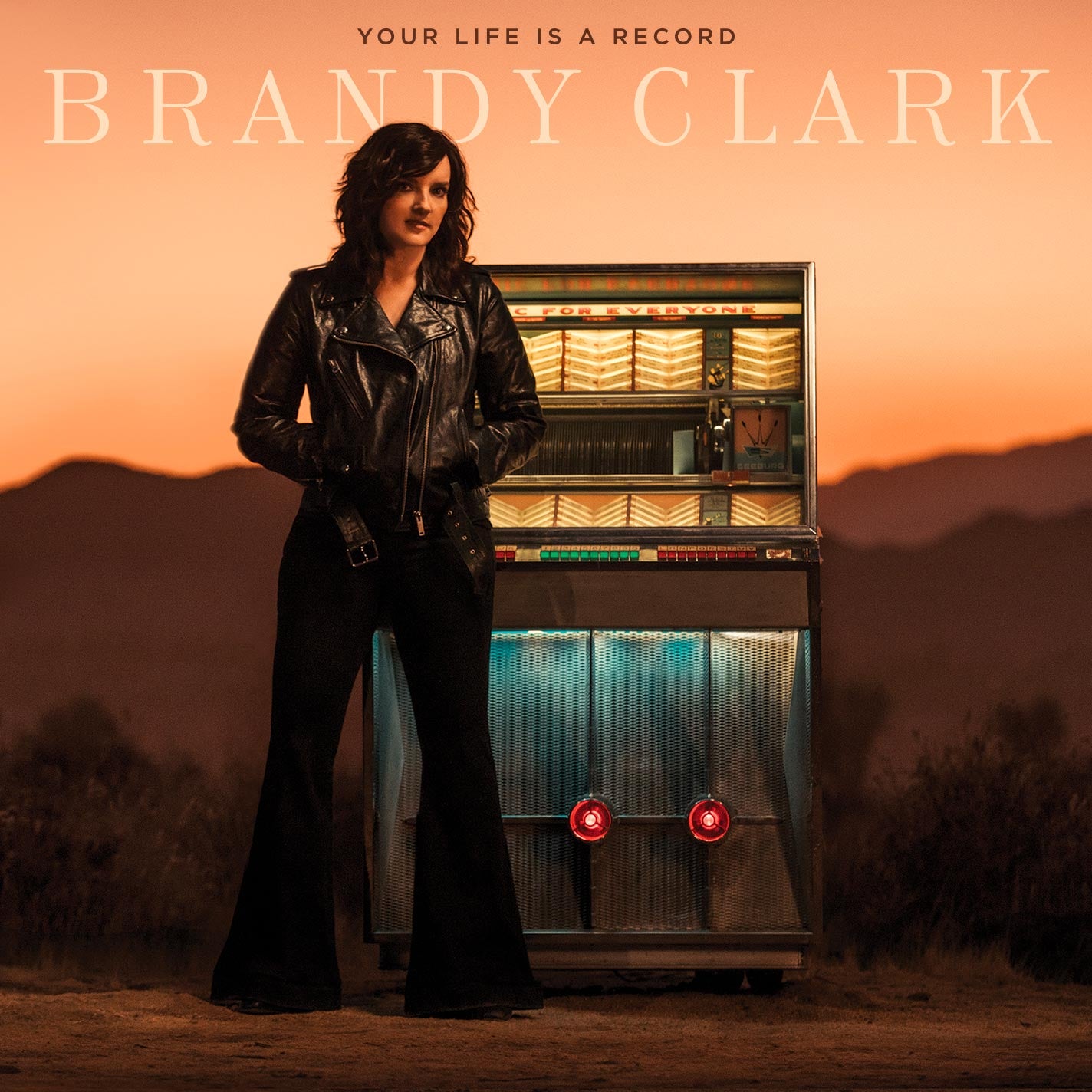Slate has relationships with various online retailers. If you buy something through our links, Slate may earn an affiliate commission. We update links when possible, but note that deals can expire and all prices are subject to change. All prices were up to date at the time of publication.
The data show mainstream country music continues to be a hostile work environment for female artists (despite a few recent encouraging signs), but if the gods of country radio insist on closing doors, then the women of country will go on opening windows. In craft and creativity, these women have been lapping most of their male peers for years now. For proof, consider the members of the distaff twang-gang supergroups Pistol Annies (Miranda Lambert, Ashley Monroe, and Angaleena Presley) and the Highwomen (Brandi Carlile, Natalie Hemby, Maren Morris, and Amanda Shires). Not to mention Kacey Musgraves, Ashley McBryde, and Lori McKenna. And please add, to the peak of that list, the extraordinary Brandy Clark, who this week is releasing her third solo album, Your Life Is a Record.
Now 44, Clark arrived in Nashville, Tennessee, from a tiny logging community in Washington state toward the end of the 1990s, but she really started making an impact as a behind-the-scenes songwriter only around 2010—an experience that must have fed into co-writing her younger peer Hailey Whitters’ recent breakthrough song about being “12 years into a 10-year town.” Clark’s own turnaround came partly through building up alliances, most notably with songwriter Shane McAnally, whom she paired up with to create hits for Lambert (“Mama’s Broken Heart”), the Band Perry (“Better Dig Two”), and eventually Musgraves, too. It didn’t escape notice that Clark and McAnally, each of them out of the closet from early in their careers, had a hand in Musgraves’ “Follow Your Arrow,” the explicitly queer-positive anthem that won the Country Music Association’s Song of the Year prize in 2014.
Meanwhile, though, Clark was finally getting heard as an artist in her own right, when her first album, 12 Stories, was released on a small indie in 2013. Feeling very much like a songwriter’s collection of pieces that had been too intense for the marketplace, it attracted a lot of notice—as well as a Grammy nomination for Best New Artist—for its close-up portraits of ordinary miseries (“Take a Little Pill”) as well as its witty takes on the brighter side (“Get High”) among its cast of flyover-country, working-class characters.
On her major-label follow-up in 2016, Big Day in a Small Town, Clark returned with another batch of story songs, for instance the title track, a series of vignettes from the small-town-gossip grapevine, featuring a pregnant teenager’s water breaking in geometry class, a bad dad’s drunken highway wreck, and a vengeful wife hunting her “Methodist man” husband—who’s been stepping around with a “jailbait checkout queen”—through the Walmart aisles, in her nightgown, with a baseball bat. “There’s always somethin’ to talk about,” she winks. But here it was with a much more expansive sound, produced by Jay Joyce, known for bringing grand rock ’n’ roll reverberations to country records by Eric Church, Little Big Town, Carrie Underwood, and others. The single “Girl Next Door”—a rolling steam locomotive of anti-gender-stereotype vitriol (“If you want the girl next door/ Some Virgin Mary metaphor … then go next door”)—even briefly threatened the charts, but ultimately it stalled out at No. 39 in country airplay. Clark has acknowledged that she took that hard.
With Your Life Is a Record, then, she’s apparently decided to say, the hell with chasing country-radio waterfalls, much as her friend Musgraves did with 2018’s Golden Hour, which went on to be named the Grammys’ Album of the Year. Teaming up with Joyce again, Clark challenged him this time around to begin from a small acoustic ensemble. That four-piece (the two of them along with multi-instrumentalists Jedd Hughes and Giles Reaves) becomes a resonant wooden bed over which Joyce—along with former Isaac Hayes sideman Lester Snell, arranging the contributions of the Memphis Strings & Horns—has draped an unpredictable array of twinkling and flashing, flaring and fading colors. Though the obvious comparison point is Dusty Springfield’s classic Dusty in Memphis, there’s no grasping here for revivalist clichés. The embellishments reflect and enhance the specific emotions of Clark’s highly specific songs, rather than simply pickpocketing goodwill out of the listener’s popular-music memory banks, the way retro-leaning productions often do. Rather than building in showy gestures, they create spacious sonic environments in which every revisit offers more to notice. Bring your good headphones.
Clark has mostly left behind the exercises in women-empowerment snark and spunk that her previous records leaned on for infusions of energy, a recourse that’s become its own cliché in women’s country. This is the record of a more mature person, reckoning not with fantasies but the real difficult stuff of life. And for the first time, the life in question appears to belong not so much to fictional figures, however realistically drawn, as to the songwriter herself. A story of heartbreak and recovery weaves through it that Clark has acknowledged relates to a recent breakup after a 15-year relationship.
There’s nothing inherently superior about writing autobiographical songs rather than fictional ones. That would be like saying memoirs are somehow necessarily more meaningful than novels. One of the admirable things about Clark’s career has been that she’s said she decided early on that it was more interesting to write from the point of the view of a bank teller or a waitress, of people who are out in the world making things happen or being the people things happen to, rather than from an artist’s sheltered point of view. But in her case, this shift, at least for one album, is intriguing, because her practice as a professional songwriter for hire means that she’s been habituated to creating work that transfers easily to other people’s voices. So for her to make a declaratively personal album feels like her performing-artist side claiming wider territory.
The stakes can’t help but be raised by Clark’s situation as one of the very few openly gay artists in mainstream Nashville. (Her Grammys-favorite peer Brandi Carlile, who’s also lesbian, is based in Seattle.) Clark’s been emphatic that the local music community’s generally been completely welcoming in its embrace of her, with the kind of warmth evident in the community’s current tornado-recovery unity efforts. But still, in her songwriting for other artists, she’s basically obliged to write about straight relationships. No doubt that also made using fictional characters appealing. On the new record, although there are no specific pronouns or other references making it plain that the central love story is between two women, there’s certainly nothing to contradict it. Clark may be sticking with “you” and “me” to make the emotional dynamics more “universal”—they certainly feel crushingly recognizable to me. But unlike on even her own previous albums, there’s no hint that universality equates to heterosexuality. That would be too timid a compromise in other kinds of pop music today, and arguably it is here too—but in country, it’s still a notable sign of change.
That question of how to perceive where you stand—how stuck in the past, how much moving toward the future—is also a central theme of the album, as part of its story of healing from heartbreak. The title Your Life Is a Record is taken from the opening track, “I’ll Be the Sad Song,” where Clark sings, “If your life is a record/ People and places are the songs/ There’ll be slow and there’ll be fast ones/ Lookin’ forward, lookin’ back ones … They’ll all make sense when they’re together.” That track is a kind of thesis statement that sets the listener up to hear this album as that figurative one. On that level the vintage elements in Joyce’s production also become kind of symbolic, evoking the way sounds contain and preserve personal and social history.
On the gutting “Who You Thought I Was,” Clark sings that she used to wish she could be a cowboy, or Elvis, or 18 forever, but now she only wishes she were “better”—“the me I should’ve been when we were together.” The wish-we’d-never-met two-step “Can We Be Strangers” (“We struck out as lovers/ We struck out as friends”) includes a verse that perfectly displays Clark’s knack for pivoting from general, everyperson details—repeatedly deleting your ex’s number from your phone—to the specifics that make these people seem real, like being tortured when she hears “songs about New Orleans” and feeling “that hammer in my chest/ when someone orders Crown and Sprite.”
It seems like that song should have come before, not after, the deeply moving reconciliation tune, “Who Broke Whose Heart,” which runs through all the questions that madden and haunt somebody after a failed romance, only to conclude, “Who really cares about the reasons why/ We said goodbye—it’s anybody’s guess/ All I know is I loved you, so fuck the rest.” But Clark has said that when she wrote it, that kind of equanimity was more an aspiration than a reality—and everyone has relapses—so perhaps that’s why the sequence rolls out that way. The cycle ends with the gentle “The Past Is the Past,” evoking the moment when the hoping and fighting and crying all are through, as our protagonist watches her ex’s car wheels roll away over the horizon. She doesn’t say it, but we can tell she’s silently wishing them both well, while—with a nod back to the opening track’s musical metaphor—they each let their “heartbreak beat to the radio.”
But to prevent this throughline from becoming too monotonous or overwhelming, the album changes the subject on four tracks peppered through its concise 11-song run. It takes a couple of minutes out to cheerfully assassinate faultfinders and hypocrites on “Long Walk” (as in “off a real short pier,” taking “a cinder block with you as a souvenir”). There are two short story–style songs in “Pawn Shop” and “Bad Car,” which are both poignant about the hopes and yearnings that people invest in their possessions (a wedding ring, a guitar, an ancient Freon-guzzling clunker) and how hard it can be to let them go.
And then there’s a real outlier, “Bigger Boat,” a song inspired by the most famous line from Jaws, repurposed here for a political metaphor: “We’re springing a leak, we’re coming apart/ We’re on the Titanic, but we think it’s an ark.” That one’s a duet with Randy Newman—a surprising presence but also, in ways that might shock the audience that knows him mostly from Toy Story, post-1960s pop’s grandmaster of character-driven story songs, so it makes sense Clark idolizes him. “Bigger Boat” risks being one of country music’s recent rash of “let’s get along” songs, except that it’s light-years off from that kind of earnestness, between its oompah lilt and Newman’s ironically befuddled speak-singing interrupting Clark between most of the lines. It’s not deeply socially illuminating, but it’s a laugh on an album that’s more prone to make you cry.
To describe Your Life Is a Record in its component parts is to reduce it, though, just as quoting Clark’s lyrics apart from their melodies and rhythms, even more than with most songwriters, can’t convey how affecting and insightful they feel when they’re sung. That is easier with songwriters whose cleverness is more on the surface. Clark’s approach is more painterly: It’s the angles at which her lines intersect, or how a particular tonality of red pigment plays off a background of green or a brown splash down in the other corner, that make her sound pictures so lastingly rewarding. Your Life Is a Record probably won’t get played on country radio, but listeners will be discovering it, and absorbing it into their own lives’ soundtracks, for a long time to come.

